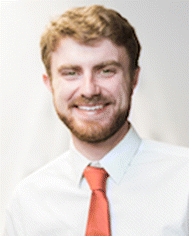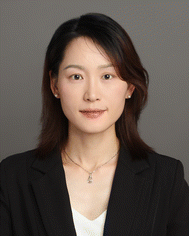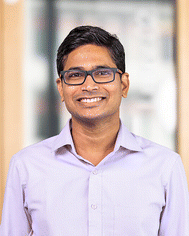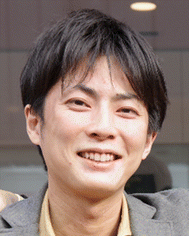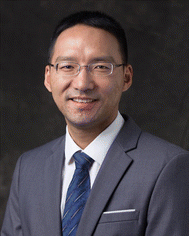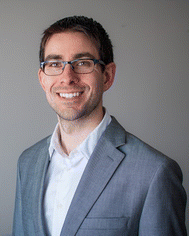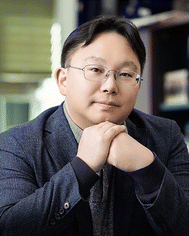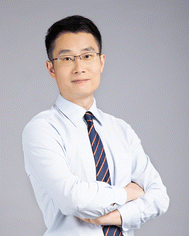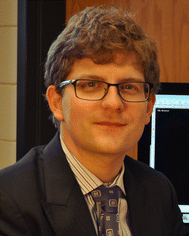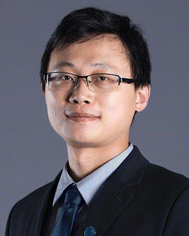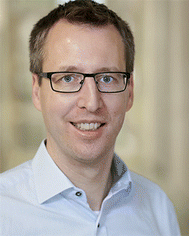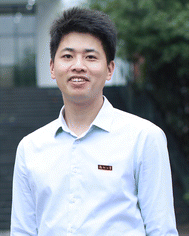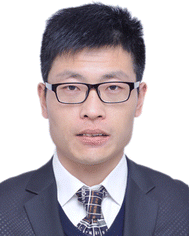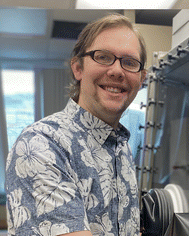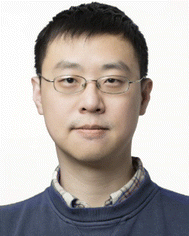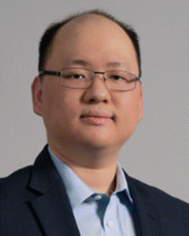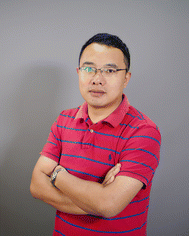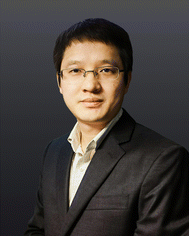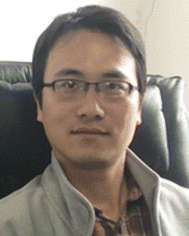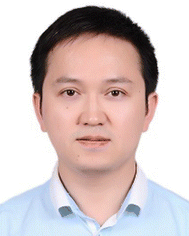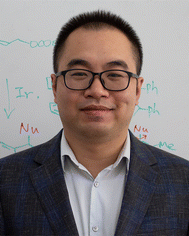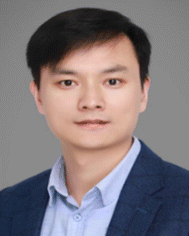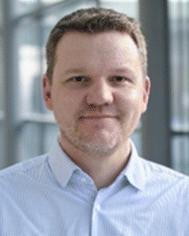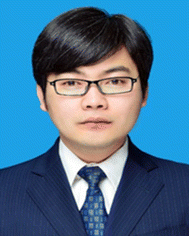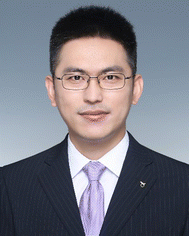DOI:
10.1039/D4QO90025A
(Profile)
Org. Chem. Front., 2024,
11, 2149-2154
Contributors to the Organic Chemistry Frontiers Emerging Investigator Series 2022–2023
Abstract
In the summer of 2022, Organic Chemistry Frontiers was pleased to launch an ongoing emerging investigators themed issue to highlight the best research being conducted by scientists in the early stages of their independent careers. Each contributor was recommended as carrying out work with the potential to influence future directions in organic chemistry. Congratulations to all the researchers featured. We hope you enjoy reading their work.
David C. Powers received his PhD at Harvard University in 2011, where he investigated the role of metal–metal redox cooperation in C–H oxidation catalysis with Professor Tobias Ritter. After that, he joined Professor Daniel Nocera's research group as an NIH post-doctoral fellow at the Massachusetts Institute of Technology and Harvard University, where he studied molecular photocatalysis for solar energy conversion. In 2015, Dave moved to Texas A&M University as an Assistant Professor and was promoted to Professor in 2023. His research program is based on synthetic organic and inorganic chemistry with an emphasis on developing reaction chemistry for sustainable synthesis.
EMI article: https://doi.org/10.1039/D3QO00190C
Lingling Chu obtained her BSc in Engineering from Hefei University of Technology in 2007. That same year, she began her PhD studies at the lab of Professor Feng-Ling Qing at the Shanghai Institute of Organic Chemistry (SIOC), where she focused on the development of new Cu-mediated oxidative trifluoromethylation reactions. In 2013, she joined the lab of Professor David MacMillan at Princeton University as a Postdoctoral Research Associate, working on photoredox catalysis. In 2016, she began her independent career at Donghua University. Her research interests focus on the fields of transition metal catalysis and radical chemistry.
EMI article: https://doi.org/10.1039/D2QO01700H
Prince Ravat obtained his PhD in 2014 from the Max Planck Institute for Polymer Research, Mainz, Germany, followed by a postdoctoral stay at the University of Basel, Switzerland. Thereafter, he moved to the University of Tokyo, Japan, to work as a JSPS postdoctoral fellow. In 2018, he started his independent research group at the University of Würzburg within the “Excellent Ideas” program. His current research focuses on the molecular engineering of functional chiral molecules for applications in organic electronics.
EMI article: https://doi.org/10.1039/D3QO00386H
Hideto Ito studied organometallic chemistry and organic chemistry at Hokkaido University under the supervision of Prof. Masaya Sawamura and received his PhD in 2012. He then joined the group of Prof. Kenichiro Itami at Nagoya University as a JSPS postdoctoral research fellow. In 2013, he became a Lecturer in the same group and was promoted to Associate Professor in 2018. His research focuses on the development of new catalysts and synthetic methodologies for polycyclic aromatics, molecular nanocarbons and ladder polymers.
EMI article: https://doi.org/10.1039/D2QO02058K
Dawen Niu obtained his BE degree from Southeast University in 2006 and his PhD degree from the University of Minnesota under the guidance of Prof. Thomas R. Hoye in 2013. After that, he began his postdoctoral study with Prof. Stephen L. Buchwald (2013.12–2015.8). In 2015, he started his independent research career at Sichuan University as a professor. Currently, his research interest focuses on carbohydrate chemistry.
EMI article: https://doi.org/10.1039/D2QO01935C
Stephen G. Newman earned his doctoral degree in chemistry in 2012 at the University of Toronto in the group of Prof. Mark Lautens. After carrying out an NSERC Postdoctoral Fellowship with Prof. Klavs Jensen at the Massachusetts Institute of Technology, he joined the faculty at the University of Ottawa in 2014 where he holds a Tier 2 Canada Research Chair in Sustainable Catalysis. He and his research group seek to improve the efficiency of chemical synthesis by the application of new technologies and the development of new catalytic methods.
EMI article: https://doi.org/10.1039/D2QO01999J
Sunkyu Han obtained his BS degree at KAIST in 2006 and his PhD at MIT in 2012 under the supervision of Professor Mo Movassaghi, working on the total synthesis of agelastatin and trigonoliimine alkaloids. He then joined the research group of Professor Scott J. Miller at Yale University, where he worked on peptide-catalyzed site-selective functionalizations of teicoplanin as a postdoctoral associate. Sunkyu started his independent career as an Assistant Professor at KAIST in 2014 and is currently an Associate Professor in the same institution. Professor Han's laboratory is interested in the total synthesis of complex natural products and natural products-inspired development of synthetic methods and functional materials.
EMI article: https://doi.org/10.1039/D3QO01098H
Chuan He obtained his bachelor's degree in Chemistry from Wuhan University, China, in 2008. He then began his PhD studies at the same university under the supervision of Prof. Aiwen Lei. After completing his PhD in 2013, he joined Prof. Matthew Gaunt's group as a postdoctoral researcher and Marie Curie Research Fellow at the University of Cambridge, UK. In 2018, he joined Southern University of Science and Technology as an associate professor to start his independent research career. His current research interests focus on chiral organosilicon and organoboron chemistry, particularly aiming to develop new synthetic methods to expedite the synthesis of silicon-stereogenic silanes and boron-stereogenic compounds with high efficiency and selectivity, and to explore their applications in asymmetric catalysis, chiral materials, and chiral bio-active molecules.
EMI article: https://doi.org/10.1039/D3QO01084H
Severin T. Schneebeli is originally from Zurich, Switzerland. He received his BA degree in Chemistry from the University of Zurich, and his PhD degree in Chemistry from Columbia University. As an IIN Postdoctoral Fellow at Northwestern University, Severin worked with 2016 Chemistry Nobel laureate Sir Fraser Stoddart on the synthesis and computational modeling of advanced molecular machines. Since 2022 he has worked as an Associate Professor at Purdue University in the Departments of Chemistry and Industrial & Molecular Pharmaceutics (IMPH). Before moving to Purdue, Dr Schneebeli started his independent career at the University of Vermont Chemistry Department as a faculty member and the Director of the Materials Science Program. Severin's research expertise lies in organic synthesis, supramolecular chemistry, and multiscale computer modeling to advance protein biotechnology, specifically for the formulation and delivery of peptide and protein drugs.
EMI article: https://doi.org/10.1039/D3QO00480E
Zhaobin Wang received his BS degree in Chemistry from Nanjing University, and his PhD degree in Organic Chemistry from the Hong Kong University of Science and Technology (HKUST). After postdoctoral work with Prof. Gregory C. Fu in Caltech from 2016 to 2019, he started his independent career at Westlake University, China. Research in his group focuses on developing novel methodologies with an emphasis on transition metal catalysis to improve synthetic efficiency, reaction selectivity, and sustainability and applying new methods in synthesizing valuable molecules.
EMI article: https://doi.org/10.1039/D2QO01676A
Jochen Niemeyer studied chemistry at the University of Muenster (Germany) and obtained his PhD in 2009 in the group of Prof. Gerhard Erker. After postdoctoral work with Prof. Simon Aldridge in Oxford (UK) from 2010–2011, he worked in the R&D department of Evonik Industries AG. In 2014, Jochen started his independent academic career at the University of Duisburg-Essen (Germany). He was appointed as Associate Professor for Organic and Supramolecular Chemistry in 2020 and was promoted to Full Professor in 2023. The Niemeyer group is working on the development of novel chemosensors and organocatalysts.
EMI article: https://doi.org/10.1039/D3QO00206C
Ke-Yin Ye obtained his bachelor's degree from Xiamen University (mentors: Prof. Pei-Qiang Huang and Prof. Hong-Kui Zhang) and PhD from Shanghai Institute of Organic Chemistry (mentors: Prof. Li-Xin Dai and Prof. Shu-Li You). He then conducted his postdoctoral research with Prof. Gerhard Erker (Universität Münster) and Prof. Song Lin (Cornell University), respectively. In June 2019 he started his independent career at Fuzhou University as a Minjiang Professor. His research interests include organometallics, asymmetric catalysis, and electrosynthesis.
EMI article: https://doi.org/10.1039/D3QO01241G
Chao Liu obtained his BSc (2007) and PhD (2012) at Wuhan University under the supervision of Prof. Aiwen Lei. During his PhD study, he spent a year as a visiting student at Durham University in Prof. Todd B. Marder's group (2008/10–2009/10). He started his independent career in 2015 at Lanzhou Institute of Chemical Physics, Chinese Academy of Sciences. Research in his group focuses on organoboron chemistry, including the development of novel methods for the synthesis and transformation of organoboron compounds.
EMI article: https://doi.org/10.1039/D3QO00521F
Michael C. Young began his chemistry career at Western Carolina studying hydrogen-bonded self-assembly with Prof. Brian D. Dinkelmeyer. Then he obtained his PhD degree in organic chemistry at the University of California, Riverside studying self-assembly of metal–organic polyhedra with Prof. Richard J. Hooley. After that, he conducted postdoctoral work with Prof. Guangbin Dong at the University of Texas at Austin from 2014 to 2016. Now he leads his own group at the University of Toledo, attempting to combine all of his hydrogen-bonding and self-assembly know-how towards useful C–H functionalization for derivatization of sustainable feedstocks for therapeutic, energy, and materials applications.
EMI article: https://doi.org/10.1039/D3QO00778B
Huan Cong obtained his bachelor's degree from Peking University, where he worked in the laboratory of Prof. Zhenfeng Xi. He earned his PhD at Boston University, directed by Prof. John A. Porco, prior to postdoctoral training with Prof. Gregory C. Fu at MIT and Caltech. Since 2015, he has been at the Technical Institute of Physics and Chemistry, Chinese Academy of Sciences as a Principal Investigator. He also serves as an Adjunct Professor at the School of Future Technology, University of CAS, and Associate Director of CAS Key Laboratory of Photochemical Conversion and Optoelectronic Materials. At TIPC-CAS, the Cong Lab focuses on syntheses and applications of functional organic molecules, in particular, strained aromatic macrocycles.
EMI article: https://doi.org/10.1039/D3QO01351K
Zhongxing Huang obtained his BSc degree from Peking University in 2012 under the supervision of Professors Jianbo Wang and Yan Zhang. He conducted his graduate study in the laboratory of Professor Guangbin Dong at the University of Texas at Austin (2012–2016), and the University of Chicago (2016–2017). Upon the completion of his PhD thesis, he joined the laboratory of Professor Barry M. Trost at Stanford University as a postdoctoral fellow and studied cycloaddition reactions involving Pd–heteroallyl intermediates. In August 2019, Zhongxing joined the Department of Chemistry at the University of Hong Kong as an Assistant Professor. Research in his lab focuses on developing new and innovative organic transformations that address challenges in organic synthesis and have broad implications in multiple areas, including environmental and medicinal chemistry.
EMI article: https://doi.org/10.1039/D2QO02055F
Zhuangzhi Shi was born in Jiangsu province, People's Republic of China, in 1983. He received his BS and MS degrees in chemistry and organic chemistry from Yangzhou University in 2005 and 2008. Then, he moved to Peking University and completed his PhD in medicinal chemistry with Prof. Ning Jiao. In 2011, he joined the group of Prof. Frank Glorius at Westfalische Wilhelms-Universitat Münster (Germany), as an Alexander von Humboldt Research Fellow. In 2014, he joined the Department of Chemistry at Nanjing University as a full professor. His current research efforts are focused on synthetic methodology, including the activation of inert chemical bonds, radical chemistry, boron chemistry and asymmetric catalysis.
EMI article: https://doi.org/10.1039/D3QO00691C
Gang Li is currently a Professor at Shanghai Jiao Tong University. He received his BSc from the University of Science and Technology of China (USTC) in 2005. After one year of graduate study at the University of Minnesota–Twin Cities, he transferred to the University of Wisconsin–Madison, where he obtained his PhD with Professor Richard P. Hsung in 2009. Following one year of postdoctoral work at Emory University with Professor Albert Padwa, he moved to The Scripps Research Institute (TSRI) as a research associate with Professor Jin-Quan Yu in 2010. Then he was a professor at Fujian Institute of Research on the Structure of Matter from 2014 to 2021. Research in his group includes the utilization of carbon dioxide in organic synthesis and direct transformation of inert bonds.
EMI article: https://doi.org/10.1039/D3QO00479A
Bin Xiao graduated from the University of Science and Technology of China (USTC) in 2006. After his graduation, he continued to pursue his PhD degree at USTC. In 2011, he finished his doctoral study and became a postdoctoral fellow at Tsinghua University (P. R. of China). Xiao returned to USTC as an associate professor in 2013 and started his independent career by focusing his interests on organogermanium chemistry. Now, he has become a professor in the Department of Chemistry at USTC.
EMI article: https://doi.org/10.1039/D2QO01712A
Liang-Qiu Lu obtained his PhD degree from Central China Normal University (CCNU) under the supervision of Professor Wen-Jing Xiao (2011). Subsequently, he worked as a Humboldt postdoctoral fellow with Prof. Matthias Beller in the Leibniz Institute for Catalysis (2011–2013). In June 2015, he was exceptionally promoted from lecturer to full professor. His research interests focus on organic photochemical synthesis and asymmetric catalysis.
EMI article: https://doi.org/10.1039/D3QO00551H
Ying He received his bachelor's degree (2008) and PhD (2013) from Nanjing University of Science and Technology under the supervision of Prof. Chun Cai. In 2013, he worked as a research assistant at Nanjing University for a short time. From 2013 to 2016, he conducted postdoctoral research at the University of California, Berkeley with Prof. F. Dean Toste. In 2016, he began his independent career at Nanjing University of Science and Technology. His current research interests include the development of new organic synthesis methodologies, especially in the field of asymmetric organic synthesis.
EMI article: https://doi.org/10.1039/D3QO00343D
Liang-An Chen studied chemistry at Fuyang Normal University (2004–2008) and received his MS and PhD in organic chemistry at Xiamen University (2008–2014). Afterward, he began postdoctoral research at Columbia University (2015–2018) and then joined Indiana University Bloomington as a postdoctoral fellow (2018–2019). In 2019, he started his independent academic career as a full professor of chemistry at Nanjing Normal University. His research interests focus on the development of practical synthetic methods and novel strategies with metal catalysis for the synthesis of functionalized molecules with an emphasis on precise and controllable selective chemical synthesis.
EMI article: https://doi.org/10.1039/D3QO00136A
Urs Gellrich studied chemistry at the University of Freiburg in Germany where he obtained his Doctorate in 2013 for his work on supramolecular ligands under the guidance of Prof. Bernhard Breit. He then joined the group of Prof. David Milstein at the Weizmann Institute of Science as a Postdoc. In 2017 Urs started his independent career as a Liebig Fellow of the FCI at the Justus Liebig University Giessen where he is currently Emmy Noether Group Leader. His research focuses on the
in silico design of novel metal-free systems for bond activation and catalysis.
EMI article: https://doi.org/10.1039/D2QO01998A
Guangfan Zheng received his BS degree from Jilin University in 2010, and his PhD degree from the Northeast Normal University (NENU) under the guidance of Prof. Qian Zhang and Prof. Haizhu Sun in 2017. From 2017 to 2018, he worked at the Dalian Institute of Chemical Physics; from 2018 to 2020, he worked as an associate research fellow at Shaanxi Normal University. He joined NENU in 2020 as an Associate Professor and his research interests focus on NHCs-catalyzed cascade transformation, visible light catalysis, and asymmetric catalysis.
EMI article: https://doi.org/10.1039/D2QO01993K
Meng Li received his PhD from the Institute of Chemistry, Chinese Academy of Sciences in 2015 under the supervision of Prof. Chuan-Feng Chen. He is currently working as a Professor at the Institute of Chemistry, Chinese Academy of Sciences. His research interests focus on chiral optoelectronic materials and devices.
EMI article: https://doi.org/10.1039/D2QO01383E
|
| This journal is © the Partner Organisations 2024 |

